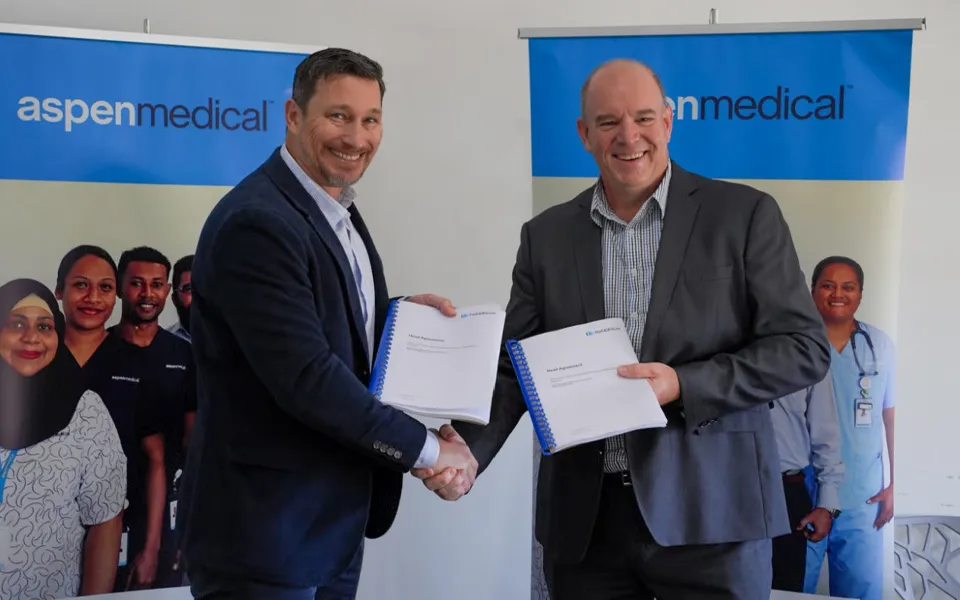
Aspen Medical advances patient care in Fiji with the introduction of state-of-the-art clinical software

Aspen Medical will begin the introduction of an advanced electronic health system in Fiji the coming weeks. MEDITECH Expanse integrates patient data, clinical workflows, and communication tools into a single platform. The software developed by US company Meditech, will lead to a more seamless and patient-centred care experience at Lautoka Hospital and Ba Hospital.
Aspen Medical CEO in Fiji Gavin Whiteside said, “We believe Expanse will be a valuable tool in our ongoing efforts to innovate and optimise healthcare delivery. The platform will transform how we deliver care by providing a comprehensive view of a patient’s health history, regardless of care location, to guide health care decision-making.”
MEDITECH Executive Director Gina Kerley, said “We are excited to partner with Aspen Medical to modernise healthcare delivery in Fiji.
“Through our Expanse platform, we’re enabling care teams to work more collaboratively, access vital information in real time, and ultimately enhance the experience for both patients and providers. This collaboration also marks an exciting milestone for us we extend our global footprint, now supporting healthcare organisations in 29 countries.”
The Expanse platform also enables Aspen Medical to better manage care for patients with chronic conditions, like high blood pressure and diabetes, or those at increased risk for illness based on lifestyle or family history. Patients can opt in to receive text message reminders of upcoming appointments or preventative screenings, to help them stay healthier longer.
Meanwhile, Expanse also provides patients with access to a secure patient portal. This portal will give them the ability to see new test results, review discharge instructions, and connect with clinicians anywhere. It is a convenient area for patients to request prescription renewals, make co-payments, and schedule online virtual visits from home if desired. Patients can also use the portal to complete online pre-registration forms prior to scheduled appointments, thereby saving time during check ins.
The full implementation of the new system is expected to be completed in 2027.

